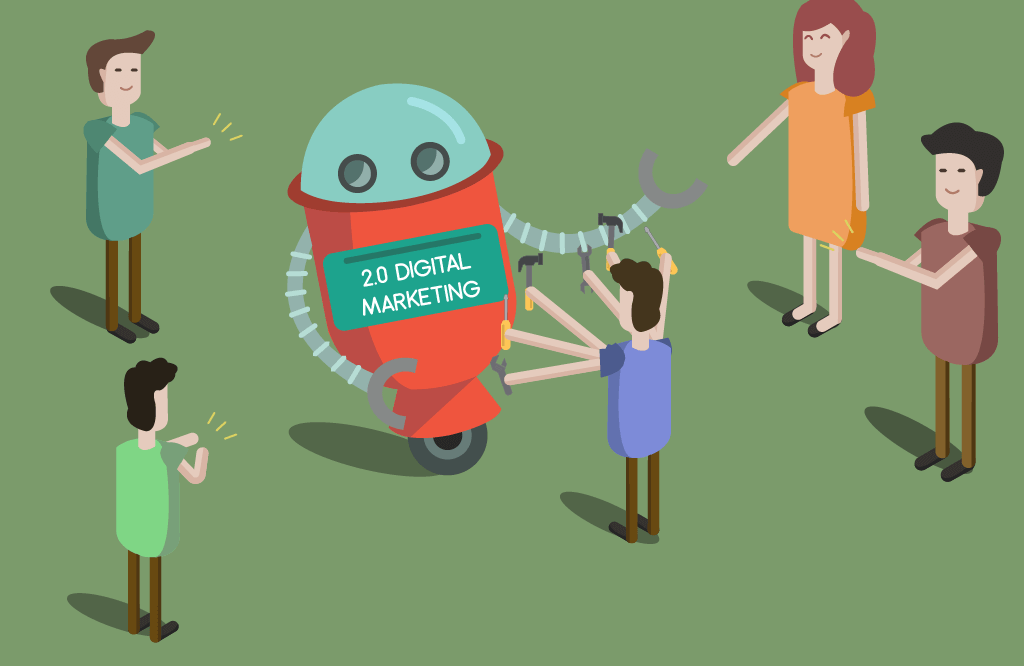How to Rank your Local Business with Local SEO Services

In the first half of this year, the total revenue in digital advertising in Hong Kong has been estimated at 998 million US dollars. The market’s largest segment is still banner advertising with a volume of 414 million American dollars, all thanks to the retail industry which accounts for the largest revenue share (4.3 percent).
Regardless of the fact that Hong Kong has a shopping mall on almost every corner and that a lot of surveys suggest that the majority of the city’s residents still prefer shopping in physical stores as opposed to online ones – there is concrete evidence that shows that the general attitude is slowly shifting in a different direction.
Latest KPMG’s and GS1’s survey has shown that more than 40 percent of questioned Hong Kong citizens feel good about shopping online, from any location at any time. They are slowly developing a habit of using the Internet for something more than just browsing through websites, which is great for brands that are currently transitioning from a traditional brick-and-mortar concept to an online business.
A lot of businesses in Hong Kong are currently just taking their first steps in the online world and learning how to reach their audiences via Google and social media. The fact that banner advertising, a widely outdated method in more digitally evolved societies, is still big in Hong Kong, shows how wide open the market really is for brands which are willing to go beyond the basics and invest in a bit more advanced digital marketing and advertising practices.

Hello SEO!
Unlike banner advertising that tends to be ineffective, intrusive, and borderline annoying for the users, SEO represents a different, more prolific approach to marketing.
Search engine optimization is currently the most popular and lucrative strategy for reaching online audiences. It is a specific marketing discipline, focused on improving the visibility of your brand, website, and specific page in the organic search.
According to a recent study by Borrell Associates, SEO as an industry is now worth almost 80 billion dollars. It has cemented its position at the very top of digital marketing.
The way SEO helps companies is quite simple: through various strategic activities and smart usage of relevant keywords, businesses can expect to be found on the first page of Google results in the exact moment when their relevant prospects need info/products/services that their business can provide.
Knowing that 93 percent of all online experiences begin with a simple search in the search engine and that 94 percent of people ignore paid results and only focus on the organic ones in search – investing in SEO certainly pays off.
The Problem with SEO and Making Your Website Search Engine-Friendly
Even though the vast majority understands the benefits of investing in this digital marketing practice, search engine optimization is still a tough cookie to crack.
SEO focuses both on the technical and on creative elements to improve the rankings, drive traffic, and increase exposure in search engines. Most inexperienced businesses might find it difficult to understand everything that needs to be done in order to successfully optimize their website and brand for search. It requires a wide spectrum of skills and knowledge about something that still isn’t really that straightforward.

Like that wasn’t complicated enough, SEO is constantly changing. It’s an ever-evolving and ever-growing field that requires a holistic approach to almost every aspect of the business.
Every once in a while, new elements are introduced to the game and we are forced to quickly and seamlessly adapt to the new terrain.
It’s hard for smaller teams and inexperienced businesses to handle that much change and complete all of their SEO-related activities on their own. That’s why most of them either outsource their SEO-related work to an agency (to make sure your efforts in this particular department are handled by experienced people who do SEO for a living and have the actual manpower to see everything through) or focus on optimizing specific elements of their website and business for search.
The trick is to find out where your business can profit the most and shift all your efforts in that direction.
In today’s article, we are going to narrow the focus down a bit and talk about a smaller piece of the puzzle.
A piece that’s especially valuable for Hong Kong-based businesses that operate in their own backyard.
This time, we are going to discuss Local SEO and how to successfully rank your local business for location-specific searches:
What is Local SEO and Why Should You Care?
Although Local SEO doesn’t have a universal definition, companies like Moz describe it as a “process for increasing search visibility for businesses that serve their communities face-to-face”, which is pretty much on the money.
Local SEO is definitely the bread and butter of modern brick-and-mortar businesses. This practice utilizes a bundle of different techniques and tactics to improve a particular business’ position in local search ratings.
To put it simply, Local SEO increases your chances of being discovered online by searchers who are looking for particular businesses or services near their location.

Just look at these statistics:
- 64% of local customers use Google and other online directories to find a local business
- As Google claims, 30% of mobile searches are related to a location.
- HubSpot research has proven that more than 70% of users look up and confirm the location of a business before visiting it.
Among other things like putting your small business on the map, local search plays a key role in generating leads, sales, and in-store traffic for local businesses.
When users type in a search query that consists of local keywords or they utilize location-based services on their devices, Google deploys local search rankings to provide the most relevant results. If you do a good enough job of optimizing your business and pages for lucrative and relevant keywords within your area, you could gain a lot from Google.
Let’s say that you run a small sushi place near the Wong Tai Sin Temple. It is in your best interest to generate visits from people who either live in your area or visit Hong Kong to see some of the city’s biggest attractions, like the above-mentioned temple.
Getting site visits from people who don’t live nearby or to whom you cannot deliver your food won’t do much good for your business. Sure, it’s always nice to increase exposure and let as many people as you possibly can know that you exist, but that won’t really help you see new faces coming through the door. At least not right off the bat.
The main goal of Local SEO is to help you capitalize on the local traffic and grab new customers as they’re searching for information on products or services you’re offering.
How to Optimize for Local Search
Managing Local SEO has its own set of challenges. Optimizing your brand and business for relevant keywords across one or more locations is achievable, but never easy. If you want to beat your direct and indirect competitors in local search, you need to pull all the right moves and invest a great deal of effort into doing things by the book.
Here are a couple of things you can do to almost instantly increase your chances of being discovered in local search:
Polish Your Meta Descriptions and Title Tags
Meta descriptions and title tags still matter. Literally every new page you have published, or are about to publish, represents a legitimate opportunity to target a specific geographical search phrase that’s relevant to your business. Every single new link represents a new chance to get discovered in the local search.
Google still looks at this info to learn about the specifics of a page or site. The users also value metas and alt texts and use them as “mini-ads” to figure out what to expect from a page before they visit it.
Not that long ago, Google increased the width of the main search results area. By doing this, the engine made it acceptable for users to write longer title tags and meta descriptions, and thus better communicate what’s their page about.
So, having that in mind, you can now take advantage of that extra space and produce more detailed and precise descriptions for your pages. If you’re trying to promote your local business, you can now creatively insert your business’ location whenever you want.
Every time you work on a new blog post or landing page, you should optimize that content for local search using relevant and lucrative keywords in the URL, title, header, meta description, and the body of the page.
Claim Your Google My Business Listing
For those who are not familiar with Google My Business, this a great, free, and easy-to-use tool that helps businesses increase their online visibility and manage how they appear in Google Search and Google Maps. By filling out and verifying your business information, you can both help customers find you in local search and tell them more about who you are, what you do, and what you sell.
Example:

If you optimize your Google My Business account right, you can get incredible exposure.
Claiming a bigger real estate in Google’s SERP for relevant keywords will surely benefit your business and help you get noticed. The main goal here is to optimize your Google My Business listing to the max. Add a solid and precise description of your location, street view, categories, types of payments accepted, working hours, etc. Upload your logo, photos of your business, products, services – basically anything that you think people want to see.
As I wrote above, to claim your Google My Business and all its perks, all you have to do is visit google.com/business, fill in all the required fields, and then Google will send a postcard with a PIN to your company’s physical location which you’ll need to verify simply by logging into your account and entering that PIN.
The verification process is unavoidable because Google needs proof that your business is real and that you’re its real owner. According to the search engine’s terms of service policy, only business owners have the power to claim their Google My Business page. Nobody else can do it for you. If you’re thinking about hiring an SEO agency to help you with your Local SEO, you can add one or more agency representatives as “managers” of your page. This means that they can edit your page to a certain extent, but you still remain as the one and only admin.
Get Featured on Relevant Local Directories
One of the best ways to get better exposure in local search is to take advantage of local directories that people from your community frequently use. Appearing on sites like Yelp will surely help you generate more relevant traffic to your site and bring in more actual customers to your physical store.
People visit local directories like Yelp to learn more about particular businesses, their products, and services. They’re interested in learning how satisfied their current customers really are and if a particular company is actually as good as they claim to be.
A lot of brands know that people need proof before they’ll give their trust to a particular business, so they do everything in their power to make their presence known across relevant directories in an effort to help move customers down the path to purchase.
Of course, this requires a lot of focus and labour, but it certainly pays off. The only thing you really need to be concerned about is the credibility of sites you are thinking about approaching. You don’t really want to connect your brand with notorious, spammy domains.
Generating local citations has always been a good strategy, especially for smaller businesses. If you want to make your presence known in local search, this is the way to do it.
Generate a Lot of Customer Reviews and Feedback
Nowadays, people don’t really trust advertisements. They need more than just promotional videos, articles and messages to convince them that a particular company, product, or services are as good as the ads claim them to be.
In this day and age, people don’t really go somewhere or buy something just because they felt like doing something impulsive. Especially if that something costs more than a couple of bucks.

Let’s say that you want a new cell phone. You are certainly not going to buy the first one you see in the store. No way. Like most of us, you’re going to do some research and figure out which particular brand and model works best for your budget.
The same goes for everything else. Today’s shoppers are interested in making educated decisions. Before committing to a certain deal or paying for a specific item or service, they are interested in knowing all the details in advance. They want to hear from people who have done business with a particular store or supplier before them. If they read a couple of good reviews and see that your business has more satisfied customers than your direct and indirect competitors do, they will most likely end up doing business with you.
That’s why online reviews matter. Businesses are finally starting to realize how big of an impact feedback has on their overall success. Search Engine Land’s survey shows that 84 percent of consumers trust online reviews as much as personal recommendations, and 7 out of 10 of these questioned people would leave a review of their experience if asked by the business.
There are numerous reputation marketing tools you could use to track, manage and acquire more reviews. Reputation Loop, Get Five Stars, TrustPilot – these are just some of the more popular ones. You can also use Google Alerts to help you track whenever someone mentions your brand, products and services across the web.
As a small business owner, your goal is to stack up positive reviews in places that are most relevant for your business. Of course, I’m talking about your company’s Facebook and Google My Business page. Regardless of the niche or market you operate in, most people turn to social media to see what their friends and family are doing, where they’re going for dinner, drinks, etc.
So, having that in mind – generating good reviews on your business’ Facebook page can help you bring in more customers. If people see that their friends are satisfied with your products or service, they will certainly develop a positive attitude towards your business and keep a mental note of you as a “trustworthy business owner”.
Generating good reviews on your Google My Business page is even more important because these particular reviews show up on Google every time when people search for your business.
Google also said that receiving positive reviews from your customers will help you earn better exposure in search. This, of course, implies that reviews are a ranking factor as well.
Over to You
Thank you for taking the time to read our latest blog post. We hope it helped you understand how Local SEO works and what you need to do in order to improve your local search visibility.
As you can see from everything written above, this is a game that requires a lot of time and dedication.
If you want to rule your local search rankings for relevant keywords, you need to constantly work on your exposure, encourage people to leave positive reviews about your business, and look for high-quality local directories that will help you bring in more customers through your door.
If this seems like too much for you to handle on your own, we are more than willing to help you get where you want to be. Contact us now and we can set up a meeting or a call to talk about a possible partnership!



 SEARCH
SEARCH GooglePlus
GooglePlus Disqus
Disqus